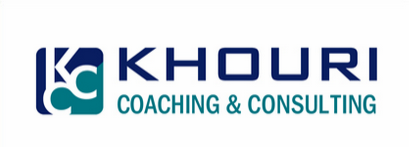This edition of the blog is co-authored with Rina Koshkina
We are hearing from clients that employee burnout and stress are higher than normal. Money magazine reported in June of this year that "layoff survivors are now stuck with more responsibilities and additional stress - for the same old salary". In a recent survey by CareerBuilder.com, 47% of workers reported that they have taken on more responsibility because of a layoff within their organization, 37% said they are handling the work of two people, and 30% feel burned out!
Clearly, in tough times, companies are trying to stretch the dollar by maximizing their resources, including human resources. But at what cost? Gordon Health Solutions, Inc. surveyed 65,000 employees and learned that employees who said stress had a large effect on their life also experienced significant productivity loss. Do you recognize this in your team? If so, how are you dealing with it?
There are a number of factors that can contribute to burnout in organizations, and there are effective ways leaders can help minimize or avoid burnout and stress. The leading causes in the workplace are: (1) work demands / pressure exceeds one's ability to meet them, (2) unclear or lack of priorities and focus, (3) insufficient recognition, (4) work / life balance, and (5) little or no time spent on personal development. So what can you do about them? How can you mitigate stress and maintain productivity? We have a few suggestions:
Excessive Demands. Disparity between demands and resources is often considered as both a leading cause and a symptom of an organizational / individual burnout. More than ever, employees are feeling the demand on the environment is greater than their perceived abilities to meet that demand. When they are stretched too thin, quality suffers; employees may feel that they have lost their edge. "I used to be great at this, what happened?" To tackle this problem, allow employees to do what they do best, focus on their natural strengths (recommended reading - Strengths-Based Development from Gallup). It is also a great time to get clear about what you are going to do and what you are not going to do. Ensure that priorities are understood and allow employees to focus on them. http://blog.khouricc.com/2009/04/18/leadership-now/
Lack of focus. "What will be the fire drill today?" This is the type of question that often stems from a severe lack of prioritization at the managerial level. Everything is not a priority and everything can't be urgent. Checking your email, while on a conference call, while thinking about a report you have to prepare for tomorrow is not an efficient or focused use of your time. Reality check - there is no such thing as multi-tasking. You can only do one thing well at a time. Leaders need to help their teams to refocus, keeping an eye on the big picture, while helping them balance the daily tasks.
On a practical level, managers can tackle this issue in various ways. For instance, meet with your team to re-prioritize projects, display the big picture goals in an easily accessible and visible location to help employees put the daily stressors in perspective. And ask for employee's input -- what's the best way to approach this issue? How will it help us get close to our objective?
Recognition. Stress may diminish performance, and mistakes are bound to happen. Suddenly, recognition becomes a thing of the past and almost a luxury. This is not a positive trend. Marcus Buckingham, the author of First, Break All the Rules, tells us that people need to be recognized in some way about once / week. This does not need to be a big award or a $100 gift certificate. Sometimes that is appropriate, and sometimes a simple thank you, an acknowledgement for working overtime, or ordering lunch for the team will do the trick. Remember everyone needs to be recognized in different ways. Some like it publicly, and other prefer an individual recognition.
Work / Life Balance. The right point of equilibrium will differ from person to person. It is our job as leaders to recognize when the job demands have gone too far, and help coach employees to strike that right balance. If someone is working 70 hours / week for four weeks in a row, you need to be able to offer some solutions and encourage employees to take the time to rest. The individual is ultimately responsible for keeping a harmonious relationship between their personal and professional lives, and the leader needs to keep an empathetic eye and help provide assistance when needed.
Personal Development. Stephen Covey, habit #7 is "Sharpen the saw". You likely know his story of the man that sees another man sawing down a tree feverishly. He observes, however, that the man is not making much progress. After a while the first man notices that the saw is very dull. So, he asks the second man, "Why don't you stop and sharpen the saw?" "Oh no," says the second, "I am much too busy cutting down the tree." Sharpening your skills takes planning - What do you want to focus on? What resources are available to help you? How can you block time so that work can get done? Now, it is more important than ever to maximize everyone's innate talents and tap into their hidden potential. As a leader you should encourage / require people to spend time on personal development, help them identify their strengths, and help those that may have difficulty planning for it and making it a priority. Make it clear that you truly care about their growth and are willing to spend the time/resources necessary.
Don's coaching questions:
-
How is your pulse of employee burnout and stress in your organization?
-
What three steps can you take to address it head on, or prevent it?
-
How much time is planned on personal development in your organization over the next 3 months? 6? 12?
Rina Koshkina is a Marketing Strategist with over 12 years of experience in the financial services industry and an Executive Coach. Recognized as a change agent and a results-oriented leader, capable of empowering and developing people in ways that contribute to individual and organizational growth, Rina has been coaching executives in various industries to maximize their potential and achieve unparallel success. Prior to her current position as a Vice President of Retail Marketing at AXA Equitable Life Insurance Company, Rina held various positions at Merrill Lynch and the MONY Group. She has a B.S. in Business Management from the City University of New York and pursuing her Graduate degree.


